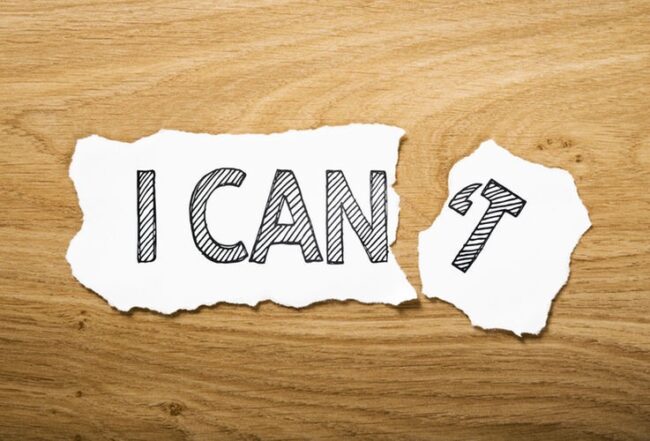Society and the media often tell us the importance of passion. They spout things like: “If you love your job, you’ll never work a day in your life!” While many of us would love to find a career that aligns with our deepest interests and passions in life, for many of us that isn’t possible.
Maybe you haven’t had the opportunity to extensively study what you truly love. Maybe your favorite hobby doesn’t have a great career pool (how many professional badminton jobs are there?). Or maybe you’ve had to prioritize bringing in an income to support yourself and your family, so you took the work that would satisfy that need.
Regardless, this juxtaposition of what we should be doing with our lives versus what we are doing with our lives makes many people feel conflicted. If everything is telling me I should love my job, and I don’t, is my life not as good as it could be?
To these people, I’d like to bring up a middle ground – hobbies. Hobbies are often overlooked for easy time-sapping activities instead. For example, maybe someone has always been interested in pottery. But instead of pursuing that interest further, they sit down every night and watch a few hours of TV instead.
Hobbies take time and effort, and often money. But if you put forth that energy, you’ll see the positive effects on every aspect of your mental health. In this article, we’ll talk specifically about how your passionate interests can aid you in overcoming addiction.
The opportunity for connection

When someone has an addiction, they often withdraw from their loved ones. This may not always be apparent, because they could be out partying every night or spending a lot of time at the bar. However, the next morning, when the shame and regret hits them, they’re often dealing with those negative feelings on their own.
If you pursue an interest of yours, you’ll find plenty of opportunities for connection. Let’s stick with the pottery example. Chances are, you don’t have a kiln in your home. So, you’re going to need to go somewhere to fire your pottery.
You can look into local artists’ businesses and find a place where they’ll let you use their kiln. You may also find out that they hold pottery classes or have a pottery group where they discuss all things clay. Now, this simple act of finishing your artwork has turned into a network of friends.
And this isn’t just connecting with anyone either – you’ll be amongst other people who share your love and passion. The opportunity to deeply discuss your interest and connect over it shouldn’t be overlooked, as this can drive your passion even more.
These interactions will not only boost your mood, but they’ll also go a long way in building up your self-worth, which may have taken a hit from battling your addiction.
Integrating your passion into therapy

When you discover an interest that means a lot to you, there are ways you can work that into your therapeutic work. So what does this look like? Well, our pottery fan can pursue art therapy, which utilizes the process of making art to make connections about one’s self, and also reduce stress and build awareness.
Let’s use another example. Say someone has always loved music, and has recently gotten back into playing the piano. For this person, music therapy may be a great avenue to explore their creativity and connect it back to how they feel about themselves and others.
If you’re actively struggling with an addiction, and you want to pursue further treatment than simply going to art or music therapy a few times a month, consider finding a holistic treatment facility that incorporates these elements into their program. An example of this is The Exclusive Hawaii, which offers sessions and classes to work with many other passions as well, like cooking, yoga, and fishing.
A chance to build your self-esteem

As we mentioned, your new hobby-related connections will help boost your mental health. However, the interest itself will also do a great deal for your self-esteem and self-worth. Let’s say you have a hard time concentrating. You struggled throughout school because you couldn’t focus, and many of your teachers disciplined you for distracting your classmates rather than helping you try to resolve the issue.
From these experiences, you actually developed a negative connotation with repetitious, intensively focused work. While you often joke about hating that kind of work, you’re secretly very self-conscious that you can’t focus. As an adult, you were diagnosed with ADHD. You were put on a medication to help you focus, and for the first time you felt “normal.”
However, you wanted to experience that “normal” feeling more and more, and you eventually started abusing your pills. You’ve completed a treatment program and are off the pills entirely, but now you’re self-conscious once again.
In this case, think how powerful it would be for you to experience that you can focus and you can accomplish tedious, difficult tasks. So now, we’d shift gears and try to find the best hobby for you. To discover a passion that you may not have fully developed, ask yourself the following questions:
What articles are you drawn to online? Are you part of any interest-related Facebook groups? Were you in an activity when you were younger that you loved, but failed to pursue as you got older? Are there certain videos online that you’re always drawn to?
After asking yourself these questions, hopefully you can think of one or two interests you’d like to look into more. From here, you can look up beginner classes in your community or online groups. The most important step is to go out and just try it. Maybe pottery isn’t your thing after all – that’s completely fine. The important thing is you took action in doing something that you were interested in – most people don’t actually take that step.
Now, you can pivot that energy into another hobby that you want to look into. There are thousands of things we can occupy our time with – it’s just a matter of finding the right one for us.
